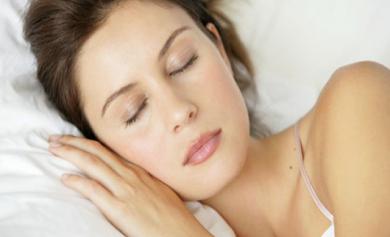
A good night’s sleep to some Americans has become a matter of life and death causing symptoms of high blood pressure, and sleep apnea. In addition, experts say many motor vehicle accidents can be linked to some variety of sleep disorder.
According to the National Centre on Sleep Disorders Research Centre (SDRC), which is an agency nestled within the National Heart, Lung, and Blood Institute and funded by the National Institute of Health (NIH) and other government agencies, an estimated 70 million people suffer from some form of sleep problem. In addition, 60 million of the 70 million accounted for suffer from chronic (meaning long-term problems with achieving a normal and restful night sleep) disorders. The SDRC goes on to say, a variety of sleep disorders such as sleep deprivation (being the disturbed or reduction of hours slept needed) and sleep apnea, a serious condition which causes a person to stop breathing during their sleep.
A sleep apnea ssufferer can stop breathing as many as 100 times in one night. It is estimated that some 20 million people suffer from this condition. These and other sleep disorders contribute $15.9 billion to the national healthcare bill along with related issues, if not directly, but indirectly contributed by the effects of sleeplessness on the body.
Speaking with the head of the Ohio Neurologic Institute & Sleep Centre, board certified neurologist Dr. Carl Ansevin on what can be done to diagnose a sleep disorder. Dr. Ansevin conducts what are known as sleep clinics, in which the patient is placed in a controlled environment, where their sleeping patterns can be closely monitored. One test used to diagnose sleep apnea in the Polysomnography, which is used to record various body systems.
Dr. Ansevin adds a common sense approach to sleep wellness in what he refers to as good sleep hygiene involving many approaches people can use with little or no cost to help ensure a better night’s rest. Starting with removing the television from the bedroom, reduce your caffeine intake, which Dr. Ansevin feels to be one of the major problems people have with getting to sleep. Furthermore, Dr. Ansevin suggests not smoking an hour before bedtime, as smoking can keep you awake as well.
Do not take long naps through the day, and only use the bedroom for sleep and sex. Dr. Ansevin went on to say a comfortable bed is important. An significant point Dr. Ansevin shared was to set aside thirty minutes a day for worry, and he suggests writing down your worries rather than taking your worries to bed with you. Make the hour before bedtime a quiet time. Take a warm bath or read a little giving you a chance to relax and unwind.
Keep your sleeping room, cool, quiet, and dark. Avoid alcohol and narcotics before going to bed; Dr. Ansevin states these two substances have been known to cause sleep apnea. Additionally, Dr. Ansevin shared the number one root cause of most cases of high blood pressure can be linked to sleep apnea. He, also, believes that there is a high probability that most work and automobile accidents without drug and alcohol involvement can be linked to some form of sleep disorder. In a time when people are feeling the effects of stress and depression in their lives from jobs, home life, and finances,
Dr. Ansevin is convinced these conditions can play a part in trouble sleeping as well. He did stress relying on medication to help a person sleep isn’t the answer, and finding the root cause to the problem is the only way to have long-term success in bettering your sleep.
–Digital Journal.com

